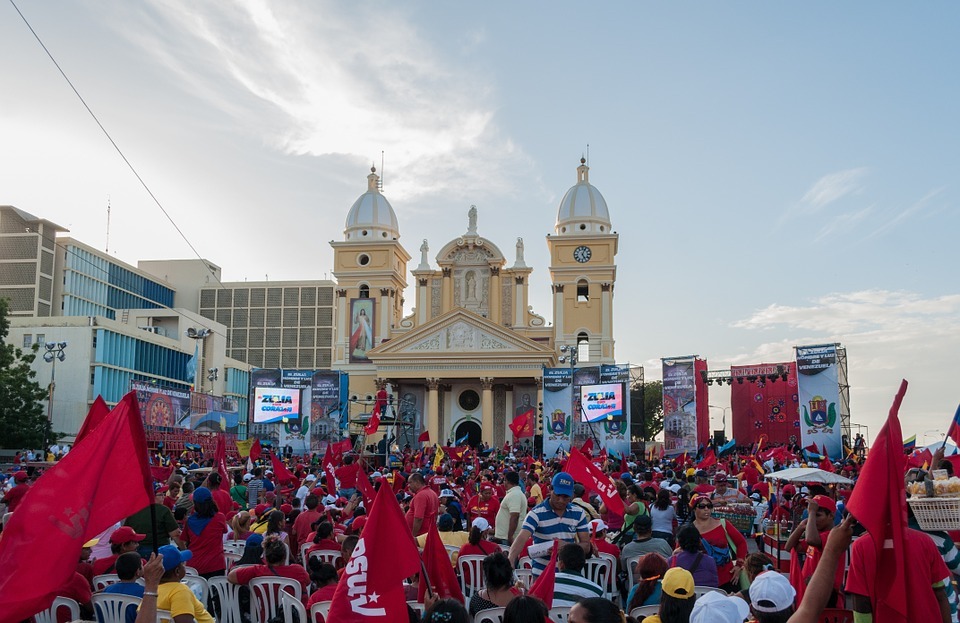As Clear as MUD? Ending Venezuela's Political Stalemate

When opposition groups postponed a planned march in Caracas on 1 November, and instead agreed to start negotiations with President Nicolás Maduro’s administration, few believed the government was genuinely committed to ending the country’s political stalemate. Already, the brief respite in protests aimed at forcing the country’s electoral council to hold a recall referendum or early presidential elections has collapsed, and a new round of anti-government demonstrations look set to begin. Yet, there are weak prospects of forcing political change through street marches in Venezuela, particularly as the main opposition coalition remains strongly divided on a course of action. Even though the economy continues to lurch towards default – surviving for now on Chinese-backed oil loans – and Maduro’s government loses more diplomatic allies, political change still hinges on the military. However, with strong vested interests in maintaining the status quo, it is unlikely that the military will move against Maduro’s government.
By effectively exploiting fault lines in the already divided political opposition bloc, Mesa de la Unidad (MUD), Maduro has emerged stronger from recent negotiations. From the outset, a number of MUD-affiliated parties rejected the negotiations and demanded a recall referendum or early elections as a precondition for talks. However, a divided opposition entered talks and ceded far more ground to the ruling Partido Socialista Unido de Venezuela (PSUV) than it gained. Whereas the PSUV’s only concrete concession was a promise to release five political opposition activists, opposition negotiators agreed to a number of government demands. Most surprisingly, they accepted that the victories of three MUD-affiliated lawmakers in the December 2015 legislative elections were null and void due to voting irregularities, thereby conceding their two-thirds majority in parliament. Maduro’s divide and conquer tactics appear to have worked, and a lack of consensus within MUD is likely to undermine concerted efforts to increase political pressure.
Up until now, the government has prioritised what little foreign reserves it has left to buy the support of rank and file police officers and soldiers through regular wage increases.
Aside from exposing internal divisions within MUD, the recent negotiations also demonstrated that diplomatic mediation is unlikely to resolve Venezuela’s political crisis. An international mediation team comprising representatives from the Vatican, Unión de Naciones Suramericanas (UNASUR), Panama, the Dominican Republic, and Spain, ultimately failed to make any meaningful headway in alleviating Venezuela’s political stalemate. Furthermore, Caracas has remained steadfast in the face of threats of expulsion from the Organisation of American States (OAS) and Mercado Común del Sur (MERCOSUR) for allegedly violating democratic and trade norms. Venezuela has been able to survive largely as a result of continued financial and diplomatic support from China. As such, while Venezuela has been in political isolation and its economy on the verge of collapse since at least 2014, Maduro’s government and the wider economy are likely to hang on, albeit by a thread.
Over and above Chinese economic support, the survival of Maduro’s government hinges on its ability to keep the armed forces in check. Up until now, the government has prioritised what little foreign reserves it has left to buy the support of rank and file police officers and soldiers through regular wage increases. More senior active and retired military figures have been bought off with influential political positions, and occupy a third of current government ministerships and half of the state governorships. Senior military officials also reportedly have their own designated state oil and mining company, headed by the current Defence Minister, Vladimir Padrino López. In addition, US prosecutors have pointed to multibillion dollar ties between several Venezuelan military officials and the global illicit drug trade. Maduro’s pandering to the military remains a cornerstone of his strategy to stay in power and, as long as he is able to do so, the status quo will likely remain unchanged.
Talk of imminent and meaningful political change in Venezuela is therefore misplaced. Despite a worsening economic crisis and growing international diplomatic pressure, Maduro’s government has not budged. With the anticipated breakdown in PSUVMUD negotiations, street protests are likely to intensify, but loyal security forces have proved capable of disrupting and dispersing anti-government groups in the past.
Opposition groups have called on the armed forces to turn on Maduro’s government, but so far, these calls have gone unanswered. However, there are several triggers which may shake up the status quo. An economic default, and inability on the part of the government to increase wages for the armed forces, could undermine the military’s loyalty. Alternatively, if Maduro’s administration increases its repression of opposition groups by deploying the military to crackdown on unarmed protesters, many rank and file soldiers may also balk and turn against the government. In either scenario, however, the prospects for a return to democratic rule in Venezuela are grim. Rather, the military is more likely to assume power rather than risk losing its commercial and political interests under a new government.
